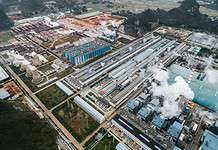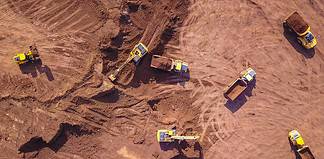 SOUTH Australia’s next major mining project moved closer to development in mid November after getting the go-ahead for a vital application.
SOUTH Australia’s next major mining project moved closer to development in mid November after getting the go-ahead for a vital application.
The South Australian Government advised Iron Road it could prepare an environmental impact statement (EIS) for its proposed US$4.5 billion Central Eyre iron project (CEIP) on the Eyre Peninsula, which would export 21.5 million tonnes per annum of high grade concentrate (magnetite).
CEIP holds ‘major development’ status in South Australia as well as Commonwealth ‘major project facilitation’ (MPF) status – the only project in the state to do so.
The EIS is expected to detail a 148km rail project, with the potential to be linked to the national rail network; a deep sea port and export facility at Cape Hardy, 7km south of Port Neill; a village to house mine operation staff adjacent to Wudinna; a 1.3km jetty and wharf structure with a covered conveyer and ship loader capable of loading cape-size vessels (up to 220,000t); and an infrastructure corridor, including a rail line, power transmission line, water pipeline and a bore field.
“The Iron Road project is hugely significant to South Australia and the State Government is very pleased to today release the EIS guidelines for the project’s infrastructure components,” Mineral Resources and Energy minister Tom Koutsantonis said.
CEIP is expected to employ a 1950-strong workforce during construction and more than 700 people when commercial production begins in 2018.
Iron Road managing director Andrew Stocks said the company was pleased to have reached this stage in the approvals process.
“Iron Road has been working towards this milestone for the past three years, undertaking extensive investigations and technical studies,” he said.
“We look forward to sharing our social, environmental and economic findings of the project studies to South Australia.”











































